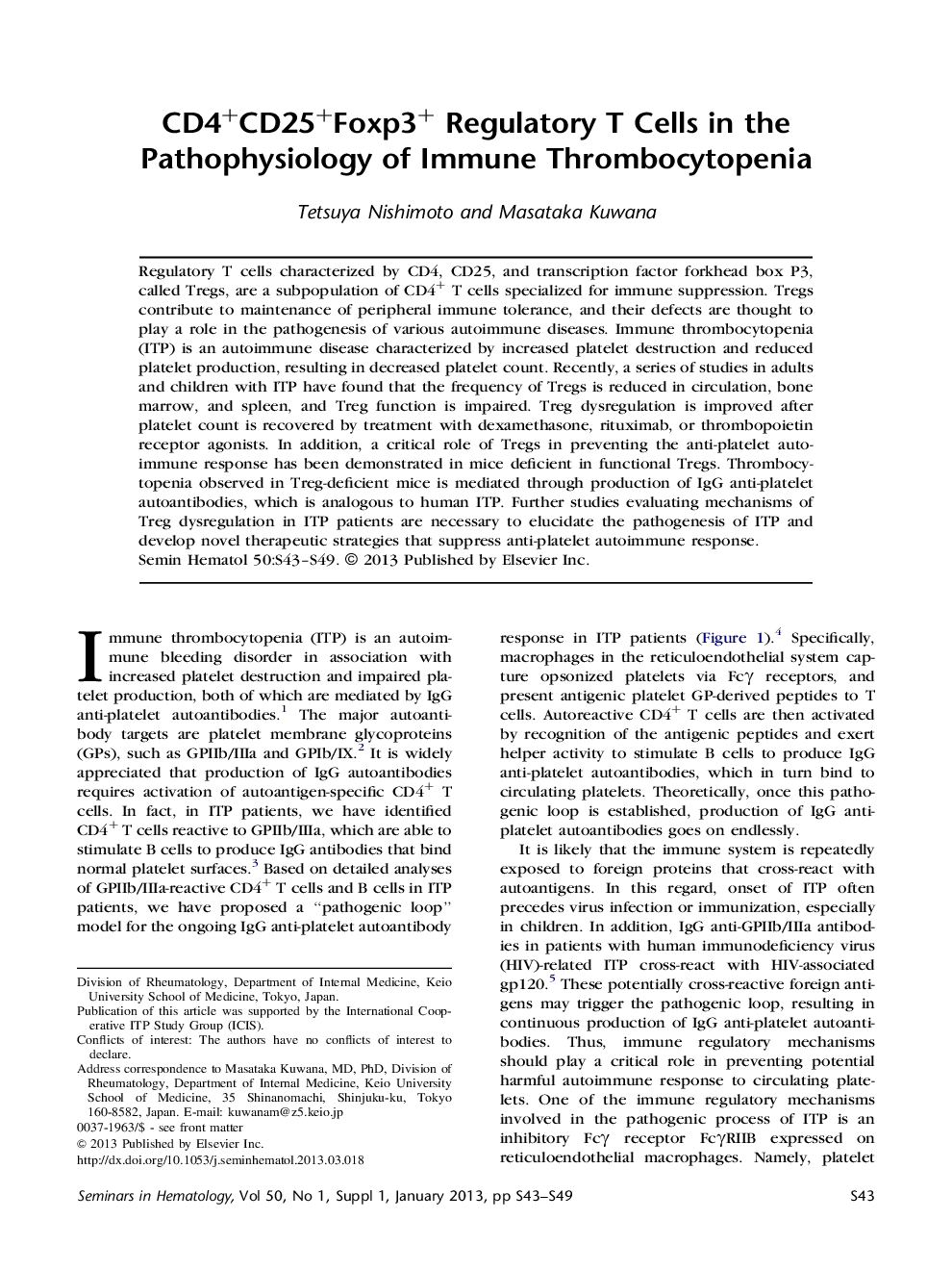| Article ID | Journal | Published Year | Pages | File Type |
|---|---|---|---|---|
| 6113816 | Seminars in Hematology | 2013 | 7 Pages |
Abstract
Regulatory T cells characterized by CD4, CD25, and transcription factor forkhead box P3, called Tregs, are a subpopulation of CD4+ T cells specialized for immune suppression. Tregs contribute to maintenance of peripheral immune tolerance, and their defects are thought to play a role in the pathogenesis of various autoimmune diseases. Immune thrombocytopenia (ITP) is an autoimmune disease characterized by increased platelet destruction and reduced platelet production, resulting in decreased platelet count. Recently, a series of studies in adults and children with ITP have found that the frequency of Tregs is reduced in circulation, bone marrow, and spleen, and Treg function is impaired. Treg dysregulation is improved after platelet count is recovered by treatment with dexamethasone, rituximab, or thrombopoietin receptor agonists. In addition, a critical role of Tregs in preventing the anti-platelet autoimmune response has been demonstrated in mice deficient in functional Tregs. Thrombocytopenia observed in Treg-deficient mice is mediated through production of IgG anti-platelet autoantibodies, which is analogous to human ITP. Further studies evaluating mechanisms of Treg dysregulation in ITP patients are necessary to elucidate the pathogenesis of ITP and develop novel therapeutic strategies that suppress anti-platelet autoimmune response.
Related Topics
Health Sciences
Medicine and Dentistry
Hematology
Authors
Tetsuya Nishimoto, Masataka Kuwana,
